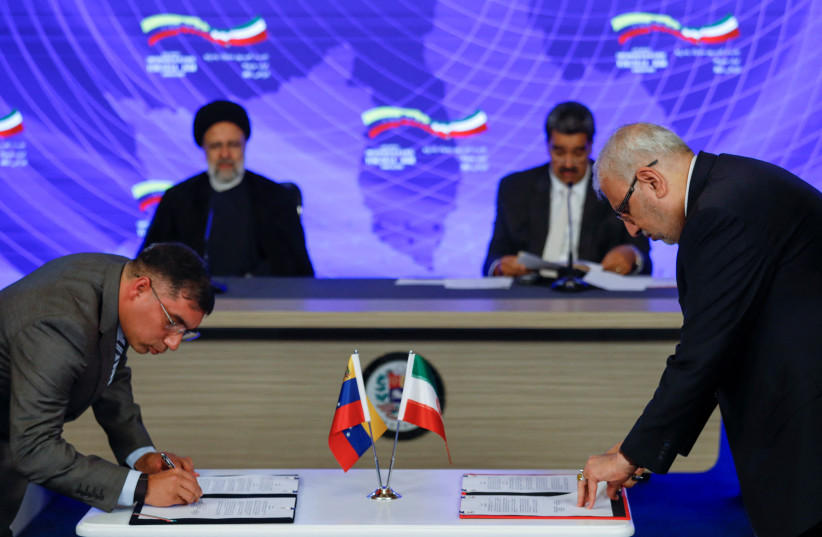Iran’s President Ibrahim Raisi, on a multi-day trip to South American countries, pushed for a “new world order” which would include Iran as a key player and would challenge the US, the West and what Iran sees as the previous order of “global domination and arrogance.”
This talking point appears to be designed to contrast with the “new world order” that US President George H.W. Bush proposed in the early 1990s - an order that would not only be American-led but would be “freer from the threat of terror, stronger in the pursuit of justice, and more secure in the quest for peace,” Bush said in 1990.
Raisi says that it is time to replace the US dollar as a global currency “as one of the other requirements of the new and just world order…to establish the new world order, we must also invest in the field of artificial intelligence and technology, so we agreed with the Venezuelan government that technology offices in Caracas will cooperate to be active in the field of new technologies between the two countries of Iran and Venezuela,” he said in Venezuela.
On the one hand, this could be read as the usual Iranian regime rhetoric about how the US is “arrogant” and evil and how Iran is “resisting” the US, Israel and others. However, the speech does not come in a vacuum.
Raisi is traveling to Nicaragua and Cuba. A recent report in the Wall Street Journal noted that Iran, Russia and China are trying to increase their influence in South America and the Caribbean. The Iranian president also recently spoke with France’s President Emanuel Macron and Iran’s deputy foreign minister traveled to the UAE where he held key meetings.

These are very real moves for Iran
China also recently attended a major business confab in Saudi Arabia and is hosting the Palestinian Authority leader. Beijing has also been talking to the US and telling America’s top diplomat to heed China’s concerns. There are attempts in other places to move trade away from the US and the West, away from the dollar and into a global economy that may be rooted more in China, Russia, Iran, Turkey, the BRICs, SCO and other groupings of countries.
Iran’s leader said in Venezuela that Iran has been a force of “resistance” and that the experience of the Iranian nation “shows that the only way to confront the enemy who can make him regret his enmity is to stand and resist and insist on positions and goals,” he said.
Iran supported Venezuela in disputes with the US, Raisi said. He also said that the US has attempted to dominate the world using “threats and sanctions, media empire, human rights debates, international organizations, military intervention, monopoly of science and technology, and interference in the internal affairs of countries.”
Iran says it wants to change “the existing mechanisms in the UN Security Council” and this is “among the indicators of a new and just world order.” Raisi said that together with Venezuela the countries will “shake the hands of those who want global justice and we will stand until the establishment of a new and just world order." His views may not be as far-fetched as in the past. The recent visit of the Venezuelan leader to Turkey and Saudi Arabia illustrates Caracas is less isolated than in the past.
Iran’s leader also highlighted Iran's joining the Shanghai Cooperation Organization and the BRICS membership as key pieces “in line with the policy that the Islamic Republic of Iran considers regional organizations among emerging powers in the new world order.”
Next, Iran proposed the replacement of the dollar as a currency of trade. Iran believes the US is in decline and that Iran and Venezuela are key parts of the opposition to the US that will lift a curtain on a multi-polar world. This type of rhetoric has also been used by Russia’s President Vladimir Putin and by Pakistan’s Imran Khan, when he was still in office. China also supports the development of this “multi-polar” world where the US is challenged for its leadership.
